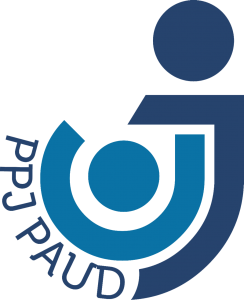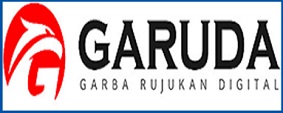Implementing Bakiak: A traditional game to improve the cooperative ability of children aged 5-6 years’ old
DOI:
https://doi.org/10.26555/jecce.v6i1.6729Abstract
Since the Covid-19 pandemic, children's play activities have been limited so they have less interaction with their peers. This may give a negative impact because children will be individualists and the ability to cooperate is not formed. Therefore, we need a game that encourages children to cooperate with their friends. The purpose of this study was to improve the cooperative ability of children aged 5-6 years through traditional clog games in Paso'tane Hamlet, Belabori Village, Parangloe District, Gowa Regency. The research method used pre-experimental, with a one-group pretest post-test research design. The population of this study were all children aged 5-6 years in Paso'tanae Hamlet, consisting of 8 children. The number of samples used were 8 children. The sampling technique used was saturated sampling so that the entire population becomes the sample. The instrument used in this study is the observation sheet. Data analysis used non-parametric statistics using the Wilcoxon ranking test. The results showed a significant difference between the pretest and posttest with a p-value of 0.012 (≤ 0.05). The average pretest score was 26.62 and the post-test score increased to 42.5. This means that there was an increase in the average score between the pretest and posttest in the cooperative ability of children aged 5-6 years through the implementation of traditional bakiak games in Paso'tanae Hamlet, Belabori Village, Parangloe District, Gowa Regency. The results of the findings can be a recommendation to apply various traditional games as a medium for playing for children and preserving local culture.
References
Ajun, K. (2010). Olah Raga Tradisional Indonesia. Kalimantan Barat: PT. MargaBorneo Tarigas.
Amridha, A., & J.S, Rahyuddin. (2020). Meningkatkan Kerjasama Anak Usia 6-7 Tahun Melalui Permainan Tradisional Bakiak. JURNAL SIPATOKKONG BPSDM SULSEL, 1(1), 1-11. Retrieved from https://ojs.bpsdmsulsel.id/index.php/sipatokkong/article/view/7
Azzahro, F.A. (2019). Analisis Media Bakiak Kayu dan Permainan Estafet Dalam Mengembangkan Kemampuan Kerjasama Anak Usia 5-6Tahun Di Kampung Dolanan Sidowayah Polanharjo Klaten. Skripsi. Semarang: Universitas Negeri Semarang.
Santi, S., & Bachtiar, M.Y. (2020). Peningkatan Kemampuan Berhitung Anak Melalui Permainan Tradisional Congklak Di Taman Kanak-Kanak. Journal Tematik, 6(1), 21-26. https://doi.org/10.26858/tematik.v6i1.14436
Fauni, A.M. (2019). Pengaruh Permainan Bakiak Terhadap Perkembangan Sosial Anak Kelompok B (Usia 5-6 Tahun) di TK Nusa Indah Palembang. Journal Pernik PAUD, 2(1), 40-51. DOI: http://dx.doi.org/10.31851/pernik.v2i2.4179
Kurniawati, T., Wahono., Hasanah, E. N. (2019). Pengaruh Sandal Bakiak Terhadap Keterampilan Sosial Anak Di TK S Melati Surabaya. Jurnal Paedagogi, 1(1), 90-100. DOI: http://dx.doi.org/10.30651/pedagogi.v5i1.2799
Hayati, Z. (2019). Penggunaan Alat Permainan Edukatif (Ape) Dari Botol Plastik Dan Koran Bekas. Jurnal Awlady: Journal Pendidikan Anak, 5(1), 56-79. DOI: 10.24235/awlady.v5i1.3457
Kementerian Pendidikan Nasional. (2014). Permendikbud No 137 Tahun 2014.
Kurniati, E., & Yustiana, Y.R. (2006). Implementasi Model Bimbingan Berbasis Permainan di Sekolah Dasar. Artikel UPI. Retrieved from http://file.upi.edu/Direktori/FIP/JUR._PGTK/197706112001122-EUIS_KURNIATI/artikel.pdf
Masganti. (2015). Psikologi Perkembangan Anak Usia Dini. Medan: Perdana Mulya Sarana.
Muamanah, S. (2018). Pengaruh Pola Asuh Orangtua Terhadap Perkembangan Sosial Emosional Anak 4-5 Tahun di Desa Bandar Abung Kecamatan Abung Sukarta Kabupaten Lampung Utara. Skripsi. Lampung: Universitas Islam Negeri Raden Intan Lampung, Fakultas Tarbiyah dan Keguruan.
Musringati. (2017). Mengembangkan Kemampuan Sosial Emosional Anak Usia Dini pada Kelompok B melalui Metode Bercerita di TK Al Ikhlas. Skripsi. STKIP Siliwangi Bandung.
Mulyasa, H, E. (2019). Manajemen PAUD. Bandung: Remaja Rosdakarya
Prabandari, I. R., & Fidesrinur. (2019). Meningkatkan Kemampuan Bekerjasama Anak Usia 5-6 Tahun Melalui Metode Bermain Kooperatif. Jurnal Audhi, 1(2), 96-105. DOI: http://dx.doi.org/10.36722/jaudhi.v1i2.572
Prantoro, G. (2015). Pengaruh Penggunaan Permainan Tradisional Bakiak DanEngklek Terhadap Peningkatan Keterampilan Sosial Anak UsiaDini. Skripsi. Tidak diterbitkan Yogyakarta: Fakultas Ilmu Pendidikan Universitas Negeri Yogyakarta.
Rasyid, H. (2009). Assesmen perkembangan anak usia dini. Yogyakarta: Multi Pressindo
Rindani, F. (2017). Pengembangan Sikap Sosial Dengan Permainan Tradisional Bakiak Pada Anak Kelas B 1 Ra Ma’arif Pulutan SalatigaTahun Pelajaran 2016/2017. Skripsi. Tidak diterbitkan. Salatiga: Institut Agama Islam Negeri.
Sugiyono. (2016). Metode Penelitian Kuantitatif, Kualitatif, R & D. Bandung: IKAPI.
Yaswinda, Y., Yulsyofriend., & Sari, H.M. (2021). Analisis Pengembangan Kognitif dan Emosional Anak Kelompok Bermain Berbasis Kawasan Pesisir Pantai. Journal obsesi, 5(2), 996-1008. DOI: 10.31004/obsesi.v5i2.711.
Setiawan, M.H.Y. (2016). Melatih keterampilan sosial anak usia dini melalui permainan tradisional. Journal Dimensi Pendidikan dan Pembelajaran, 4(1), 1-8. doi:https://doi.org/10.24269/dpp.v4i1.52
Suyadi, M, U. (2013). Konsep Dasar PAUD. Bandung: PT Remaja Rosdakarya Bandung
Tatminingsih, S. (2019). Kemampuan Sosial Emosional Anak Usia Dini di Nusa Tenggara Barat. Journal obsesi, 3(2), 21-31. DOI: 10.31004/obsesi.v3i2.170
Wardany, M.P., & Jaya, M.T.S. (2017). Aktivitas Bermain Kooperatif Meningkatkan Perkembangan Sosial-Emosional Anak. Journal Pendidikan Anak, 3(2), 1-9. http://jurnal.fkip.unila.ac.id/index.php/PAUD/article/view/14228
Downloads
Published
How to Cite
Issue
Section
License
Copyright (c) 2023 Nur Ayu Susanti, Ahmad Afiif, Eka Damayanti

This work is licensed under a Creative Commons Attribution-ShareAlike 4.0 International License.
Authors who publish with this journal agree to the following terms:
- Authors retain copyright and grant the journal right of first publication with the work simultaneously licensed under a Creative Commons Attribution-ShareAlike 4.0 International License that allows others to share the work with an acknowledgement of the works authorship and initial publication in this journal.
- Authors are able to enter into separate, additional contractual arrangements for the non-exclusive distribution of the journals published version of the work (e.g., post it to an institutional repository or publish it in a book), with an acknowledgement of its initial publication in this journal.
- Authors are permitted and encouraged to post their work online (e.g., in institutional repositories or on their website) prior to and during the submission process, as it can lead to productive exchanges, as well as earlier and greater citation of published work (See The Effect of Open Access).














